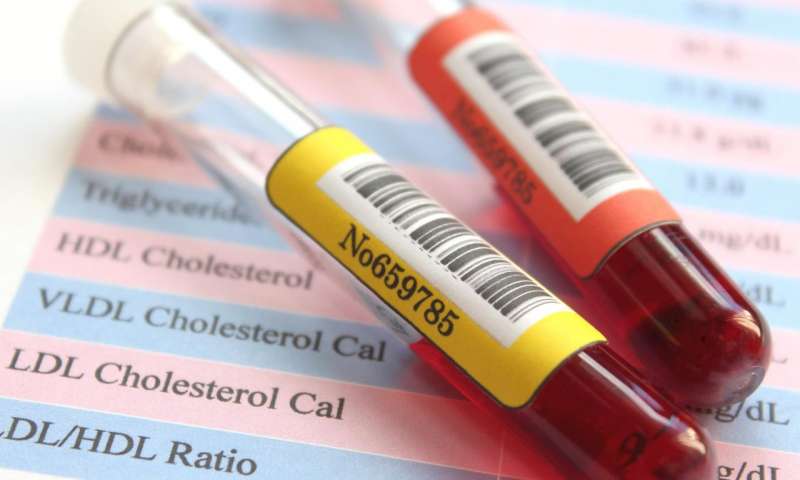Tokyo (SCCIJ) – In the near future, you may be able to take your own blood painlessly in the comfort of your home. The start-up Loop Medical based at the Swiss Federal Institute of Technology Lausanne (EPFL) is working on such a needleless device to take pain-free blood samples at home. The company recently signed a partnership agreement with Cerba HealthCare, a European leader in medical biology, to develop this unique product and bring it to the market. However, Loop Medical is competing with several start-ups in the U.S. and established pharmaceutical makers like Terumo in Japan and Fresenius in Germany.
Breakthrough device from Geneva
The breakthrough device developed by Loop Medical could indeed make it extremely simple to obtain blood samples. And the timing is perfect, given that diagnoses from blood tests are increasingly common. “Currently, 70 percent of medical decisions are based on those analysis,” says Arthur Queval, CEO of Loop Medical. “And with the rapid development of personalized medicine, this trend is likely to gain momentum.”

Taking blood without needles
Loop Medical’s cutting-edge product will make it easy to draw enough blood for an expanded range of tests. This is good news for people who require regular blood tests – and for anyone who shies away from needles. The palm-sized device is designed to allow users to take their own blood at home without the help of a health professional. After being positioned on the user’s arm, it will draw a sufficient amount of blood in roughly the same amount of time required for a traditional blood sample.
Technology based on microfluids?
The applied technology is being kept secret by Loop Medical probably due to patent issues but may involve the extraction of microfluids. Its competitor Tasso Inc.’s device called HemoLink works with a vacuum which enables about 0.15 cubic centimeters of blood to be drawn from tiny open channels into a small tube through a process known as capillary action.
Another unknown solution is needed to preserve the blood without a cold chain. Loop Medical plans to send the samples to a specialized lab through an established delivery protocol. Despite the development of portable diagnostic systems, blood samples still need to be tested in the lab. For Queval, “decentralized devices generally offer a limited number of tests, and it’s difficult to make the cost competitive with those practiced in the laboratory.”
The company said that its device will be internet-connected. This means that samples will be traceable from the moment blood is drawn until the results are delivered, thereby reducing the scope for errors that could lead to a misdiagnosis.
Also for developing countries
Soon after it was founded in 2017, Loop Medical was awarded 400,000 dollars in seed money by the Bill & Melinda Gates Foundation. The startup used this money to try out its idea through preclinical tests. The Gates Foundation sees an obvious interest in introducing needleless blood sampling in developing countries, where the materials needed to ensure proper hygiene are often lacking. And because the device will not require trained staff, it can lead to cost savings while still achieving clinically valid results that will help in the global fight against infectious diseases.
Through its new partnership agreement, Loop Medical will benefit from Cerba HealthCare’s technical, research and medical expertise as the startup enters the product’s development phase and prepares its marketing strategy and product launch. “This support from a global leader in medical biology will be a major growth accelerator for us,” adds Arthur Queval.
Competitors have not delivered
According to the website Coherentnews, there are several strong competitors in advanced development stages of devices with the same goal. Tasso received a US$ 3 million funding from Defenses Advanced Research Projects Agency (DARPA) to advance their HemoLink technology by collaborating with GenTegra LLC, a company engaged in the manufacture of a product used in the biopreservation, biobanking and in vitro diagnostics. The product launch announced for the end of 2015 has not materialized until today, though.
The website report also mentions recent approvals of the U.S. Federal Drug Administration (FDA) to enter novel and technologically advanced blood collection devices in the market. DBS System SA- granted the USPTO patent for HemaXis Microfluidic blood collection platform in November 2017. Seventh Sense Biosystems, Inc. in February 2017 received U.S. FDA clearance for a blood collection device named Touch Activated Phlebotomy (TAP). In October 2017, Ionis Pharmaceuticals made collaboration with Seventh Sense Biosystems to support the development of improved blood collection and diagnostic device.
Text: SCCIJ mainly with material of EPFL Mediacom; Photo: EPFL





























